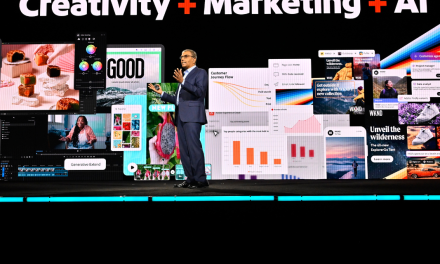New biometric research finds consumers respond more to ads in suitable contexts.
Endemically matched ads drive higher memorability. This is according to a study by digital media quality Company, Integral Ad Science (IAS).
What it means that endemically matched ads, or those that align with and match the surrounding content based on vertical (e.g. auto ad near auto content), drove a 23% lift in activation within the part of the brain responsible for memory of practical details, which includes key messages, calls to action, and branding elements. These ads also boosted global memory by 27%, or the memorability of broad themes, overarching narratives, or audio and visual elements.
IAS has released The Context Effect, the company’s latest biometric research on the importance of context in advertising on September 7.
In The Context Effect, consumers evaluated content across three types of contextual matching and IAS uncovered these key findings that can help brands ensure their ads resonate:
- Informational ads perform best when matched with an article’s key message: According to the findings, matching informational ads with an article’s message creates a very strong detail memory response, and drove a 36% lift in detail memory compared to when there was no match. This can be especially relevant for campaigns that focus on a clear call to action that brands want consumers to respond to.
- Ads focused on an emotional response are best paired with content themes: Ads that aim to leave an emotional memory, a particular feeling or overarching brand perception among consumers performed best when placed alongside articles with a matching theme (for example, an ad with a seasonal Summer thematic adjacent to summer season content). The study found that emotive ads drove 40% higher global memory within thematically-matched articles compared to when there was no match.
- Consumers recognize ads as part of their online experience: The vast majority of consumers (63%) viewed ads as part of their online reading, not disruptive or a distraction. Only 36% of participants said they scrolled past an ad without reading it.
These findings demonstrate that digital marketers can achieve higher brand memorability and elicit positive emotional responses from consumers by activating contextual strategies, the company said in a statement.
Conducted with IAS and Neuro-Insight, a neuromarketing and neuroanalytics company, this study goes beyond traditional survey data on consumer preferences and examines brain activity in response to contextually matched ads, showing context can significantly impact ad memorability.
“Using the latest neuroscience and neurometrics, this groundbreaking study demonstrates the specific ways that a webpage’s context can dramatically alter how audiences recall and respond to ads,” said Tony Marlow, CMO, IAS. “As our industry prepares for a cookieless future and increasingly moves away from audience targeting, advertisers have a significant opportunity to be intentional with contextual targeting tools, such as IAS Context Control, to drive greater campaign outcomes.”
The Context Effect study from IAS monitored 60 U.S. consumers during a 30-minute mobile experience using Neuro-Insight’s Steady State Topography (SST) to track and record brain activity in real-time. Respondents were also asked to match ads to the context they appeared within.



















